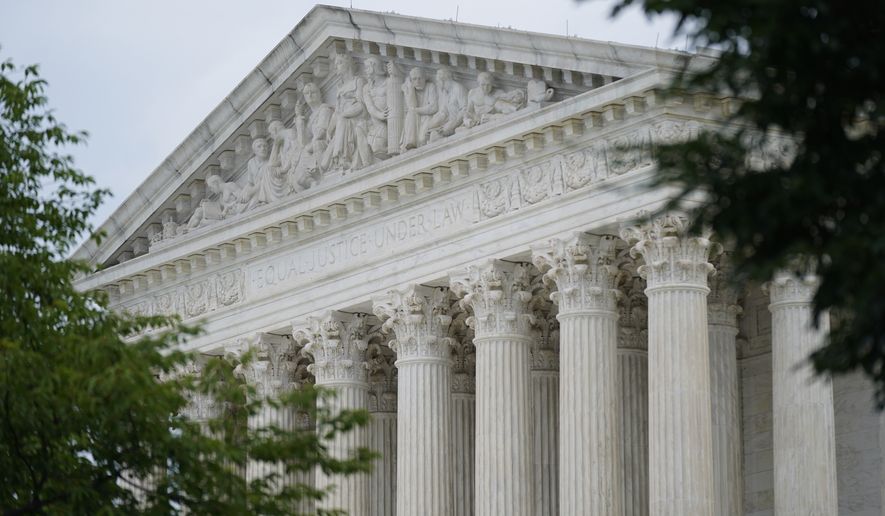The Supreme Court ruled Wednesday that Yeshiva University in New York City must recognize a gay student group, at least until a lesser court rules on the modern Orthodox Jewish school’s challenge to the move.
The justices rejected, in a 5-4 vote, the school’s emergency request for an injunction against a New York judge who had ordered that an LGBTQ club be granted official status.
“The application is denied because it appears that applicants have at least two further avenues for expedited or interim state court relief,” the majority wrote in a brief opinion. The school could “ask the New York courts to expedite consideration” of their appeal, and then they could ask the Appellate Division of the state’s Supreme Court for permission to appeal their case directly to the state Court of Appeals, something they said had not been requested before the school went to the high court.
“If applicants seek and receive neither expedited review nor interim relief from the New York courts, they may return to this Court,” the unsigned majority opinion said.
The 134-year-old Jewish tertiary institution told courts in New York that while it would enroll LGBTQ students, granting official recognition to a gay student group would contravene the school’s understanding of Jewish law contained in the Torah, the first five books of the Hebrew Scriptures known by Christians as the Old Testament.
A New York Supreme Court justice ruled in June that because Yeshiva was incorporated as an “educational corporation,” it could not claim protection from state anti-discrimination statutes as a religious organization, triggering the emergency appeal to the Supreme Court.
Chief Justice John Roberts and Associate Justices Sonia Sotomayor, Elena Kagan, Brett Kavanaugh, and Ketanji Brown Jackson voted to deny Yeshiva University’s request for an injunction blocking the New York court’s order that the school recognize YU Pride Alliance.
Associate Justice Samuel Alito, writing for a minority that included Justices Clarence Thomas, Neil Gorsuch and Amy Coney Barrett said the court should have granted the injunction request since New York courts, sometimes without explanation, refused to grant a stay while Yeshiva University appealed.
Now, Justice Alito said, “Yeshiva is almost certain to be compelled for at least some period of time (and perhaps for a lengthy spell) to instruct its students in accordance with what it regards as an incorrect interpretation of Torah and Jewish law.”
Katie Rosenfeld, a YU Pride Alliance spokesperson, said the ruling was “a victory for Yeshiva University students who are simply seeking basic rights that are uncontested at peer universities.”
She said the group expects to “continue to overcome the administration’s aggressive litigation strategies” in future court battles, adding that the school’s LGBTQ students “students will have a club for peer support this year, and the sky is not going to fall down.”
Eric Baxter, vice president and senior counsel of Becket Law, which represents the university, said the court “made clear that if that [New York court] protection is not provided, [Yeshiva University] can return to the Supreme Court to seek its protection again. We will follow the Court’s instruction.”
A Becket spokesman said Mr. Baxter’s comment represented the school’s thinking.
Others in the Jewish community also weighed in on the ruling. Marc Stern, chief legal officer of the American Jewish Committee, said the turndown “likely reflects, in large part several or all of the justices, voting to deny a stay because they object to what they see as the abuse of the so-called shadow docket, where parties skip ordinary requirements of litigation in the rush to obtain a decision by the Court.”
Mr. Stern predicted the Supreme Court would take on the case once the lower court appeals have been exhausted, given that four justices dissented today and “it only takes four justices to obtain [Supreme Court] review.”
He added that the AJC “has not taken a position on how that conflict should be resolved but does believe each side’s position deserves a full hearing.”
• Mark A. Kellner can be reached at mkellner@washingtontimes.com.




Please read our comment policy before commenting.